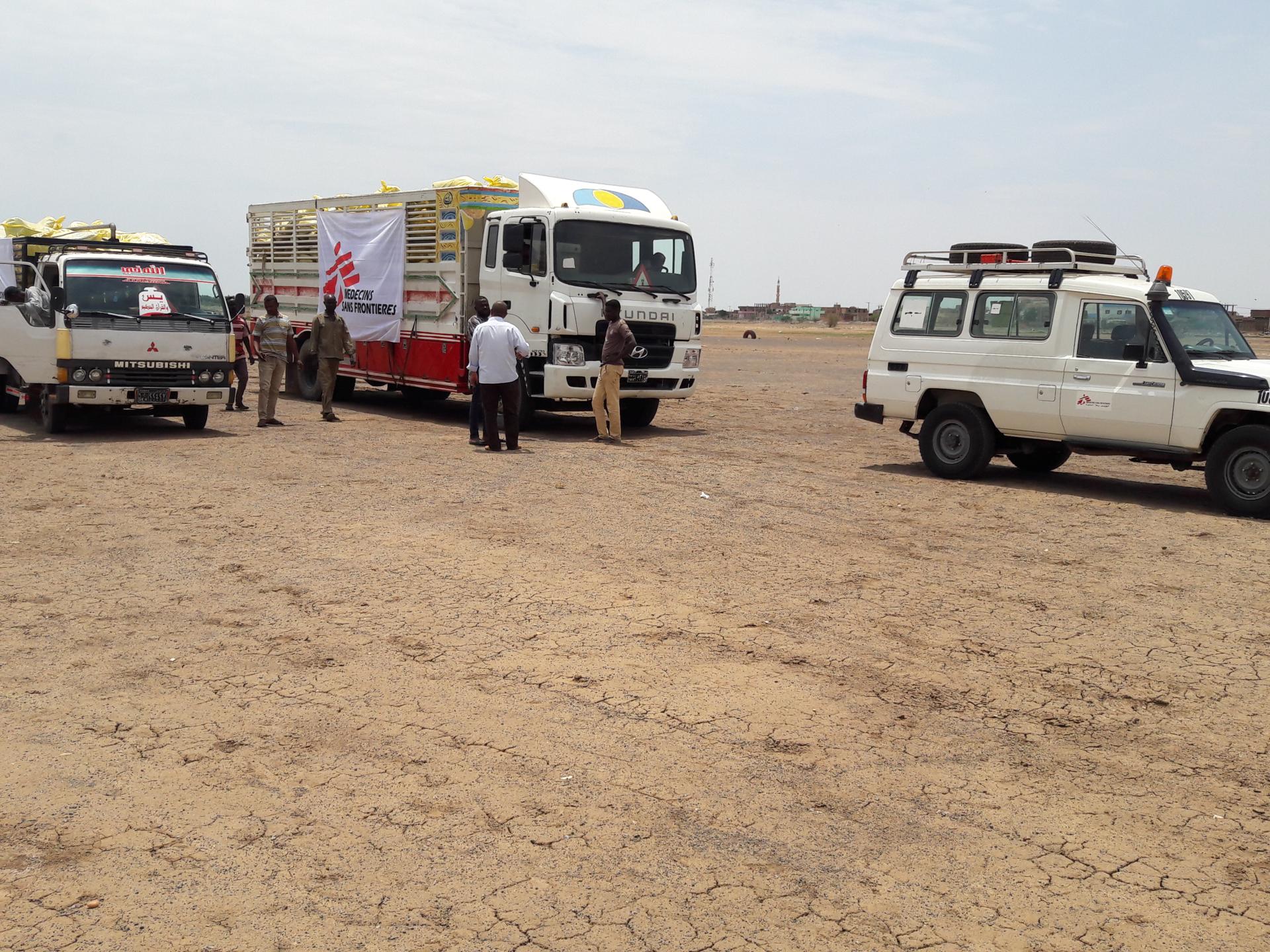Khartoum, Sennar - The international medical organization Medecins Sans Frontieres (MSF) launched an emergency response to floods and has been working at breakneck speed to provide immediate relief to the areas hard hit by the floods. MSF deployed two teams in Khartoum and the State of Sennar, working closely with local authorities, to respond rapidly to reach the people affected by the floods.
One MSF team was deployed in Shigilab to distribute non-food items (NFI) and to operate a mobile clinic that consists of doctors, nurses and support staff to provide healthcare services to the residents affected by the floods. Shigilab, 16 km south of Khartoum, is one of the hardest hit neighbourhoods in Jabal Awlia Locality of Khartoum State. The people affected by the floods are sheltered in ten locations, one camp and nine schools.
Khatab Muhy, the MSF Project Coordinator for Khartoum State, says: “Shigilab was one of the first areas affected by the flood. Families lost their belongings and people are in urgent need for aid. We distributed 523 kits of essential items which included mosquito nets, soaps, and cooking utensils to the most vulnerable families in Shigilab, and our medical team carried out 223 consultations for family members targeting all ages”
As a result of the unprecedented floods many families have been affected, one of them is Hawa, a mother of four who found herself homeless overnight. Hawa now is staying with her sister in one tent in the Khour camp, a total of 13 persons share the same tent. She said: “I am using one small pot for cooking and drinking, we do not have essentials like soap and I am worried that the children might get sick, my husband and my elder daughter went to MSF clinic for treatment”
Another MSF team was deployed to El-Suki town in Sennar State, about 300 km southeast of capital Khartoum, to assist the people impacted by the floods.
MSF team leader and Head of Mission Support, Hano Yagoub, says: “After our assessment we decided to intervene in El-Suki town as it is the most affected by flooding in Sennar State and the humanitarian response has largely focused on Sinja city, the capital of the State, while El-Suki town is left to bear the brunt of the natural disaster”. He adds: “In El-Suki town, we distributed 500 kits of non-food items targeting 390 affected families residing in six camps and also we donated medicines, established handwashing points, and provided health promotion and hygiene training in the camps”.
MSF remains committed to continue our medical support in Sudan including in emergencies, supporting health structures and providing medical assistance to patients in need and victims of natural disasters.
MSF has been working in Sudan since 1978. Currently, our teams provides medical care in Khartoum, Central Darfur, East Darfur, White Nile and South Kordofan states and launch regular emergency responses elsewhere in the country. In March, MSF started supporting the Ministry of Health, private facilities and designated COVID-19 health facilities with logistics, technical assistance, infection control measures and training of healthcare staff. MSF is currently managing a temporary COVID-19 treatment centre in partnership with Omdurman Teaching Hospital and the Ministry of Health to provide medical care to patients with moderate to severe COVID-19 symptoms.
